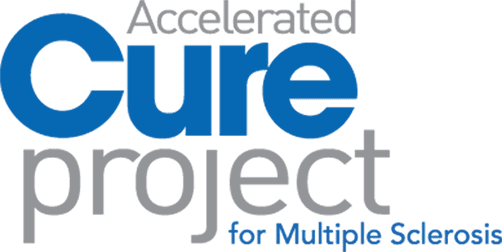The European Committee for Treatment and Research in Multiple Sclerosis (ECTRIMS) is a non-profit, independent organization committed to advancing research and treatment of MS across Europe. As the largest professional body of its kind globally, ECTRIMS leads the way in supporting research and treatment efforts.


The ECTRIMS Congress is the top global annual event for MS research, bringing together approximately 9,000 experts from across the world to share knowledge and collaborate. ECTRIMS 2024 was held on September 18-20 in Copenhagen, Denmark. It offered a wide range of international speakers, presentations and poster sessions. Attendees explored the latest research and treatments while networking with peers to advance MS care. Explore the main highlights from the conference below!
Exercise offers significant benefits for people with MS, helping to improve mobility, balance and overall strength. It also helps reduce fatigue, enhance mood, and promote a better overall quality of life.
At ECTRIMS, STEP for MS presented results from its clinical trial, which compared a 16-week home-based exercise program to one conducted in a gym. This study was conducted in partnership with ACP’s iConquerMS. The iConquerMS portal facilitated data collection, management, and participant communication. Findings showed that both exercise methods improved walking speed, with people who chose to exercise at a gym showing slightly better long-term results.

MS disproportionately affects women, with females being up to three times more likely to develop the disease than men. Understanding how MS impacts women is essential, as factors like hormones, pregnancy, and menopause can influence both the course of the disease and its symptoms.

There was a strong focus at ECTRIMS on women’s health, exploring how their unique biology and experiences influence MS differently than in men. For example, French researchers reported that pregnancy concerns may lead women with relapsing MS to delay or limit their use of disease-modifying treatments (DMTs). In a study of over 22,000 participants in the French MS registry, women were less likely to receive DMTs, especially high-efficacy ones. Treatment disparities varied across different medications; for instance, teriflunomide and fingolimod were often underused, while the use of interferons and natalizumab became more balanced over time. This treatment gap was consistent across different age groups. Investigators note that both doctors and female patients tend to be cautious about initiating treatment in women, which contributes to this reluctance.
The McDonald criteria, first established in 2001 and revised in 2005, 2010, and 2017, provide a standardized set of guidelines for diagnosing MS. By focusing on clinical symptoms, imaging, and other test results these criteria help healthcare professionals make accurate, timely diagnoses that lead to effective treatment strategies.
New changes to the McDonald criteria, presented at ECTRIMS, could allow for earlier diagnosis and treatment of MS. These updates include using advanced MRI technology and biomarkers, such as neurofilament light chain and the central vein sign, along with new guidelines for assessing optic nerve changes and identifying radiologically isolated syndrome (when MRI scans show MS-like lesions in the brain or spinal cord, in the absence of symptoms). While the 2024 revisions are still under review, they show promise for improving MS diagnosis.

BTK inhibitors block a protein (Bruton’s Tyrosine Kinase) that is involved in the activation of immune cells that can attack the nervous system. By inhibiting this protein, BTK inhibitors may help reduce inflammation and prevent the progression of MS.

Tolebrutinib is a BTK inhibitor that is being studied as a treatment for MS. At the ECTRIMS conference, researchers shared results from three clinical trials: two Phase III studies on relapsing MS (GEMINI 1 and GEMINI 2) and one on secondary progressive MS (HERCULES). Although Tolebrutinib did not reduce relapse rates in the relapsing MS studies, participants saw a significant 31% delay in disease progression. This delay was also observed in the HERCULES study, making it the first Phase 3 trial to show benefits for non-relapsing secondary progressive MS. Sanofi (the manufacturer of Tolebrutinib) announced their plans to discuss these findings with regulatory authorities in order to seek FDA approval for the drug next year. Meanwhile, the ongoing PERSEUS trial is investigating Tolebrutinib in primary progressive MS, with results expected in late 2025.
Simvastatin is a medication that lowers cholesterol, but it’s also being studied for its potential to help people with MS. Early research shows it may significantly reduce the amount of brain atrophy in people with secondary progressive MS (SPMS).
Building on the above data, investigators in the United Kingdom tested whether daily simvastatin treatment could slow disability progression in a larger group of adults with SPMS. The study enrolled 964 participants from 31 hospitals, all of whom had experienced steady disability progression over the past two years, though some also had relapses. The results, presented at ECTRIMS, showed that about 40% of people in both the treatment and placebo groups experienced confirmed progression over four years, meaning the trial did not meet its primary goal. While the treatment was safe, it wasn’t effective in slowing steady progression. However, additional MRI and blood biomarker data are still being analyzed, and researchers believe this study will provide valuable insights for future research, even though the main outcome was negative.


ECTRIMS 2024 unveiled groundbreaking advancements in MS research, from new diagnostic criteria to innovative treatment trials, offering renewed hope for those affected by the disease. These breakthroughs underscore the importance of continued collaboration and data sharing in the MS community. These principles are the mainstay of ACP’s mission and central to all of our initiatives. Together, we are working to pave the way to a future where better treatments – and ultimately, a cure – for MS are within reach.



